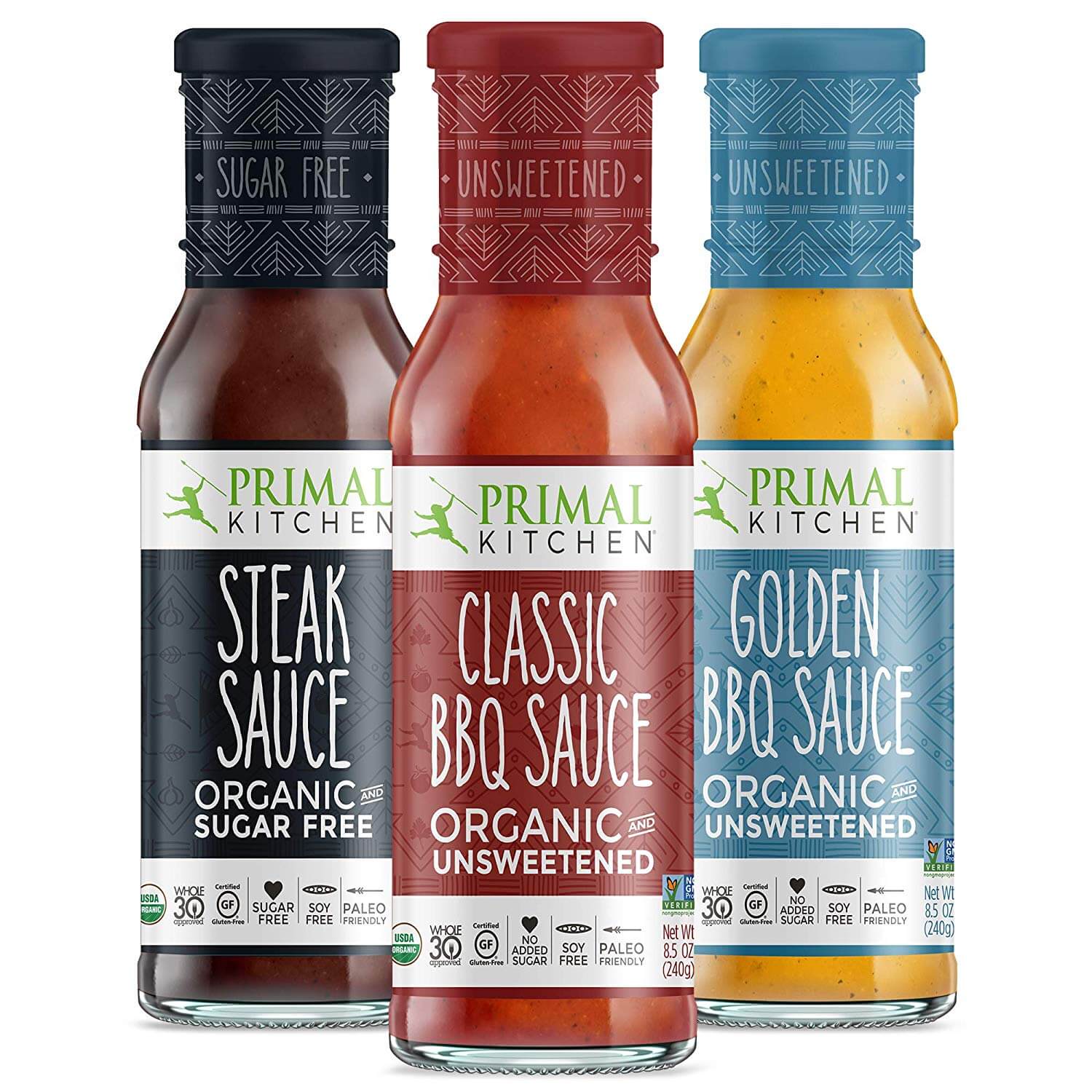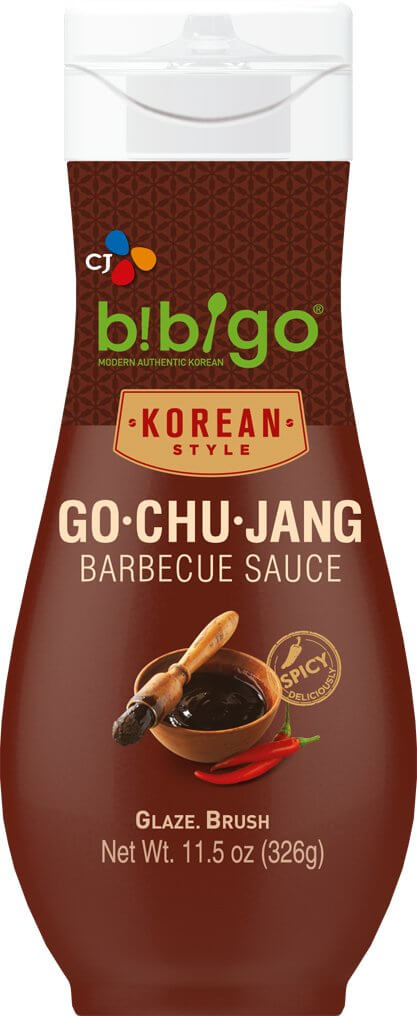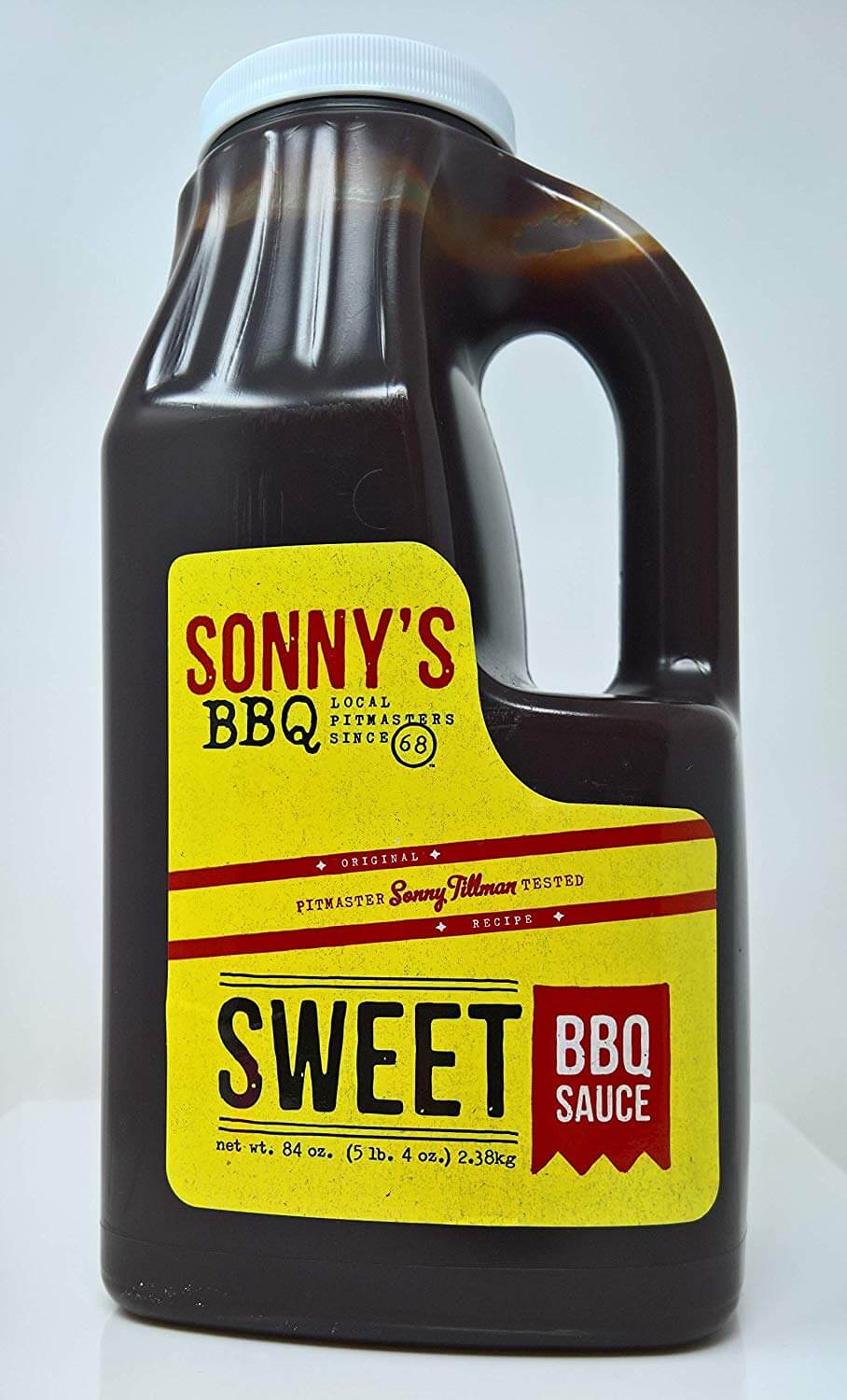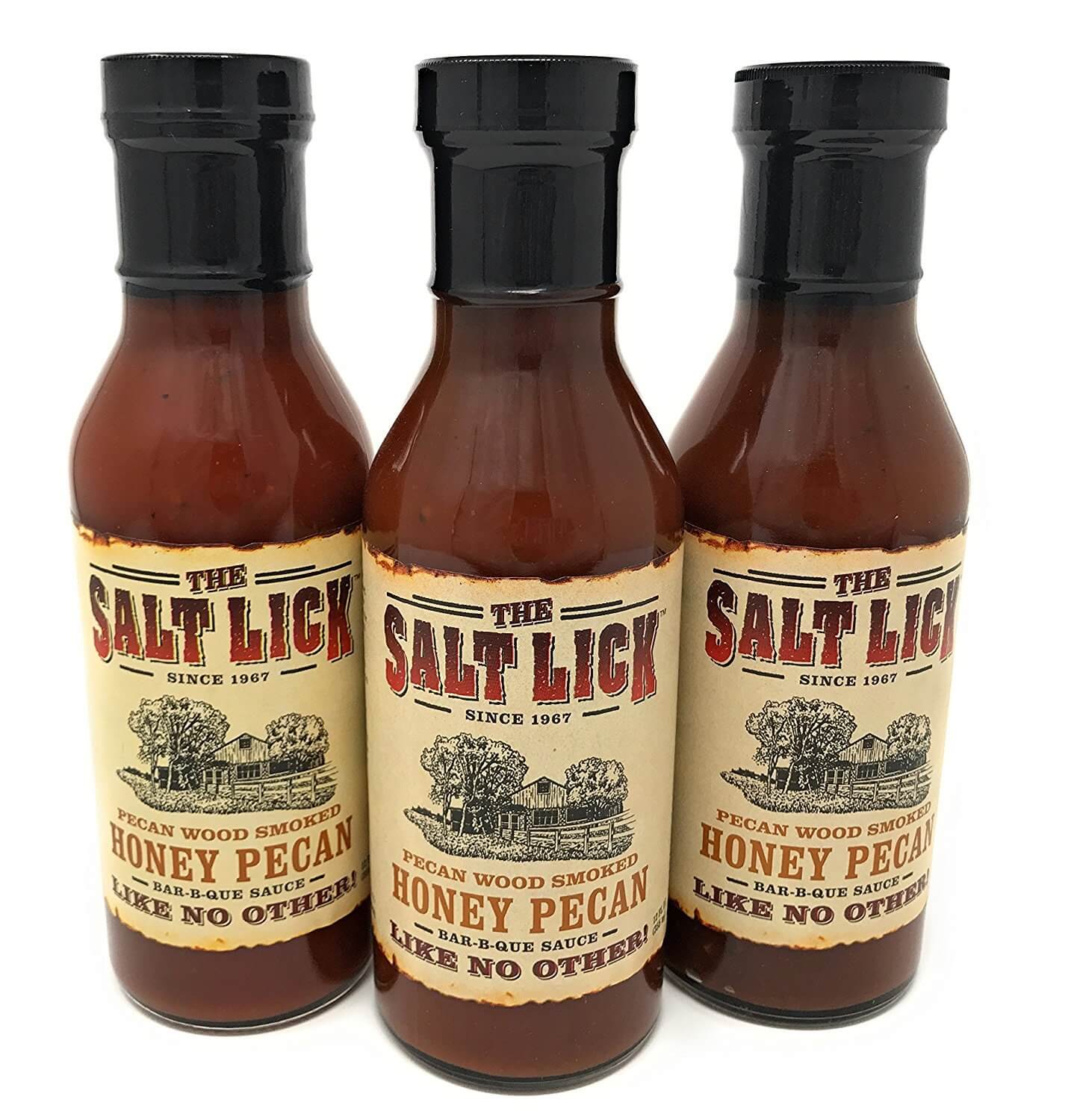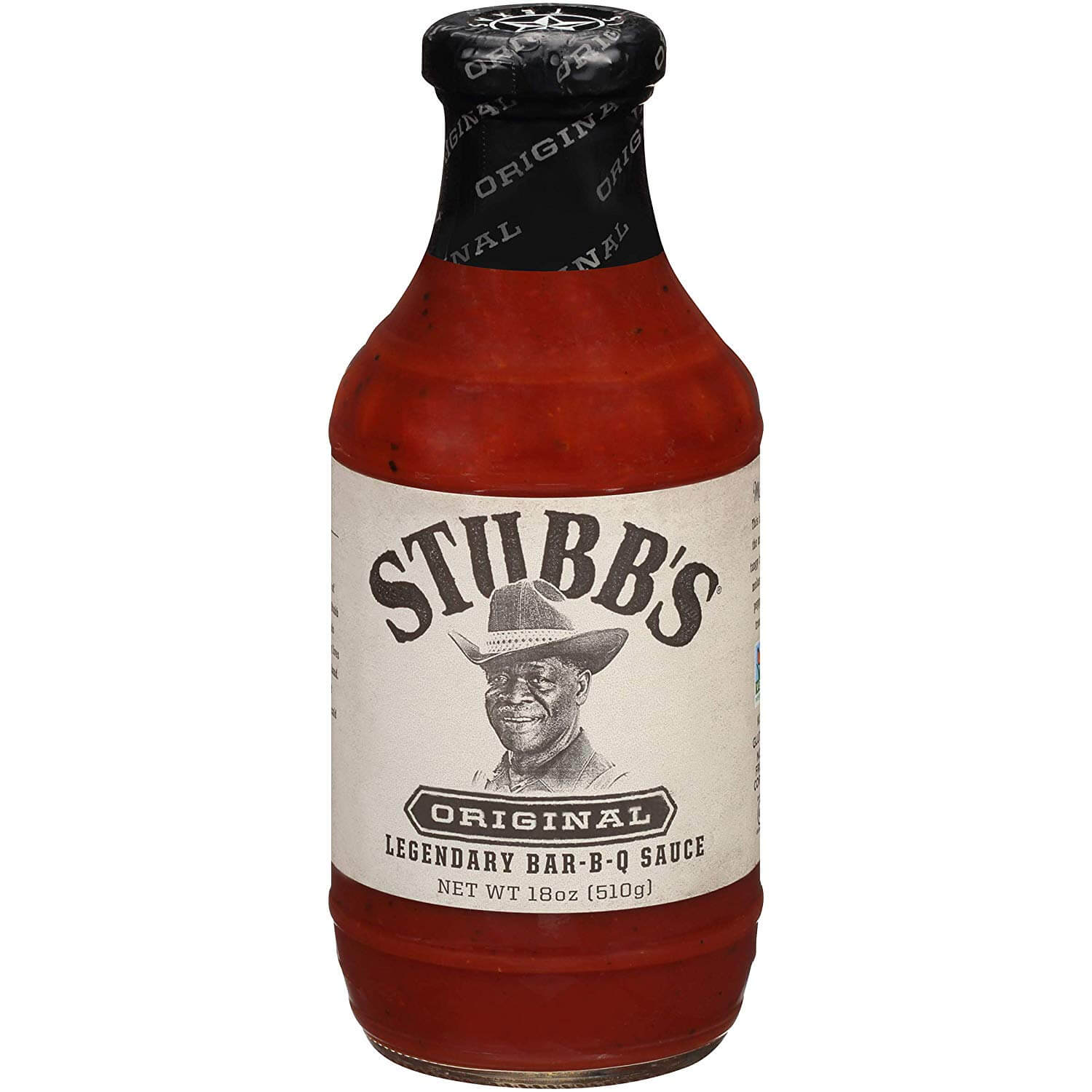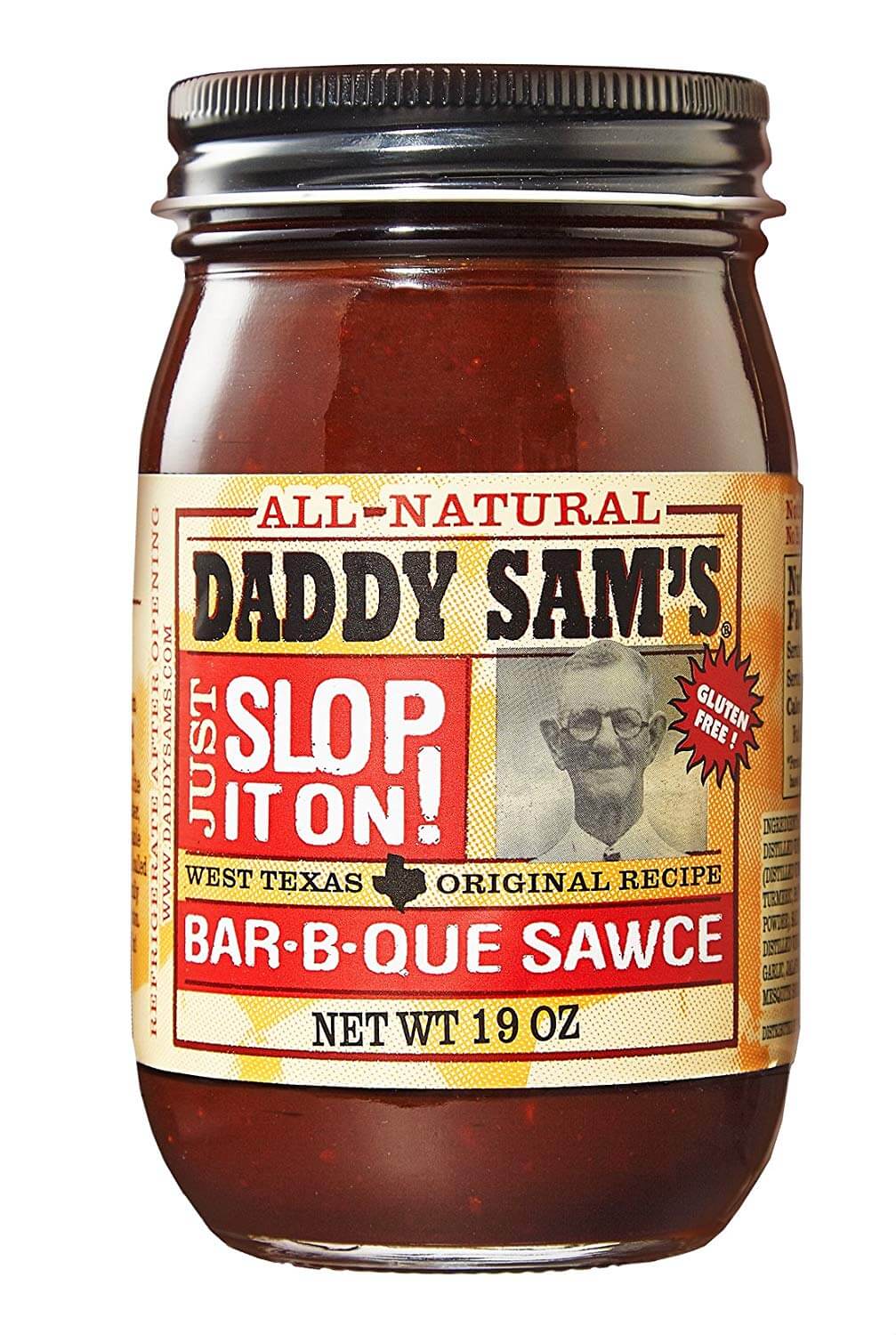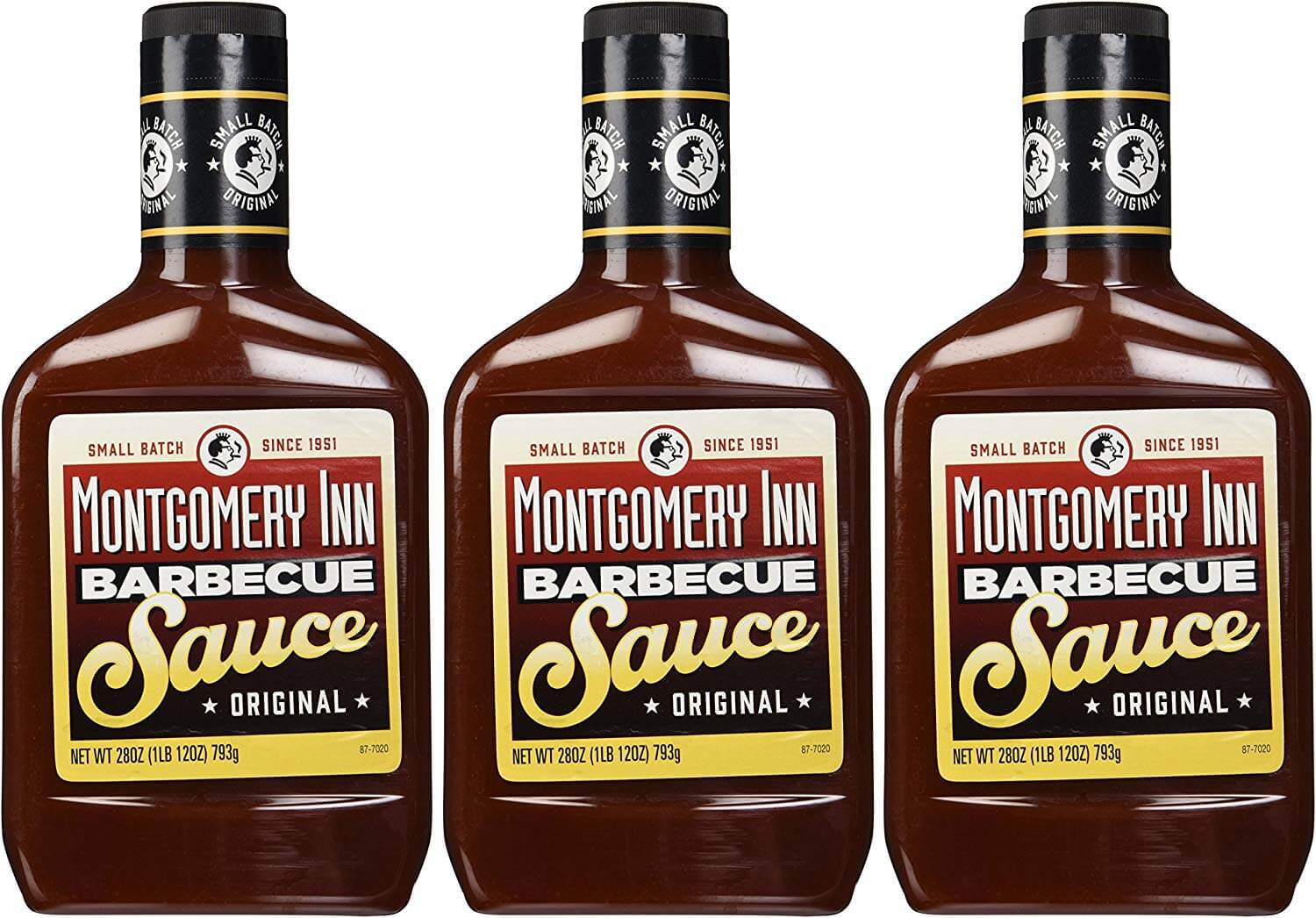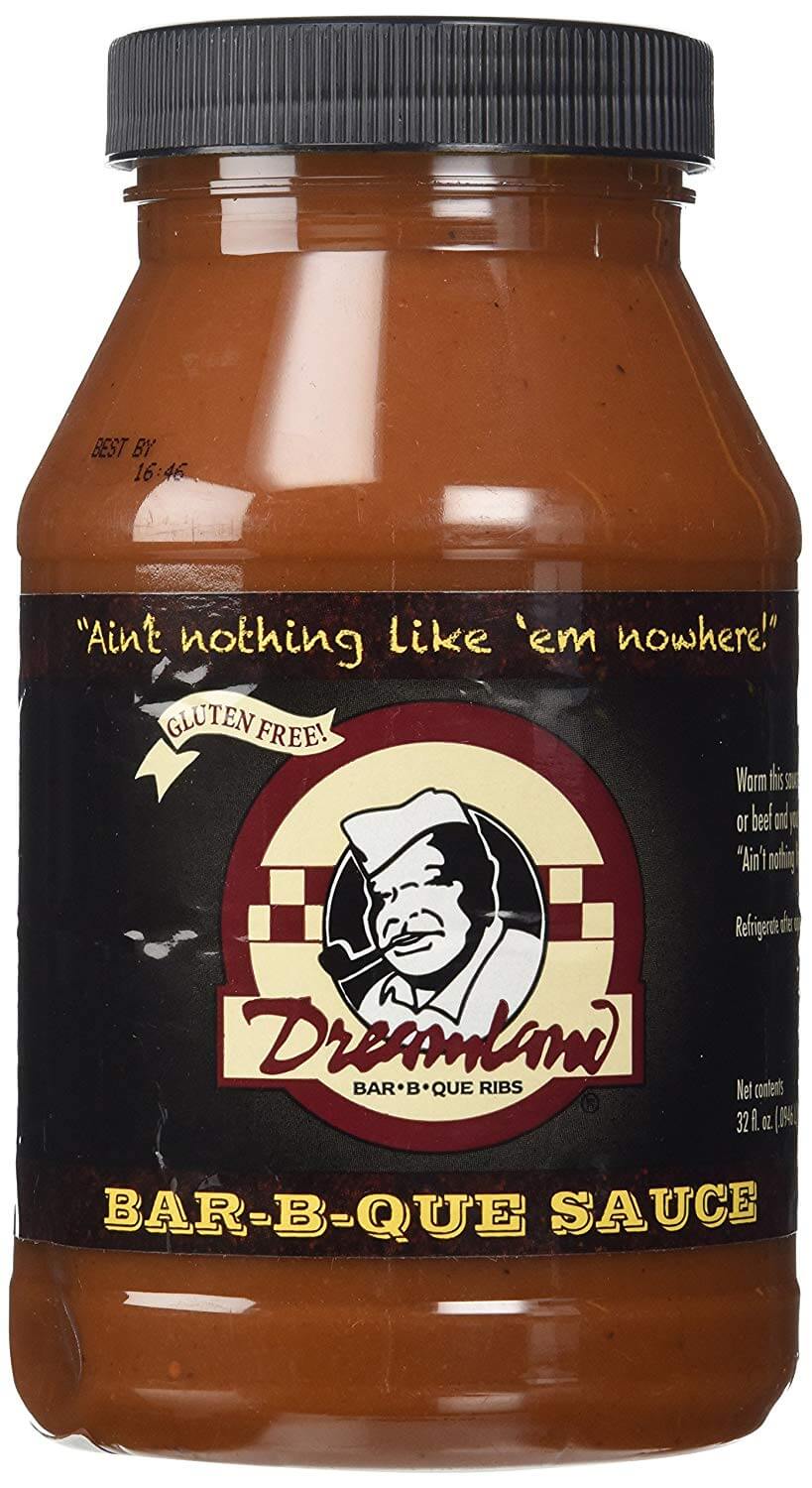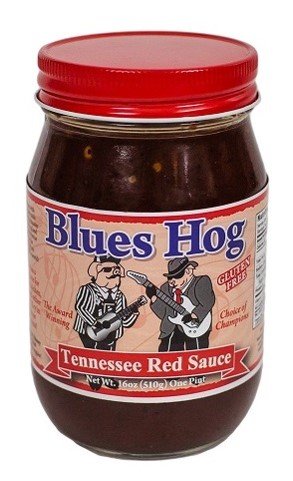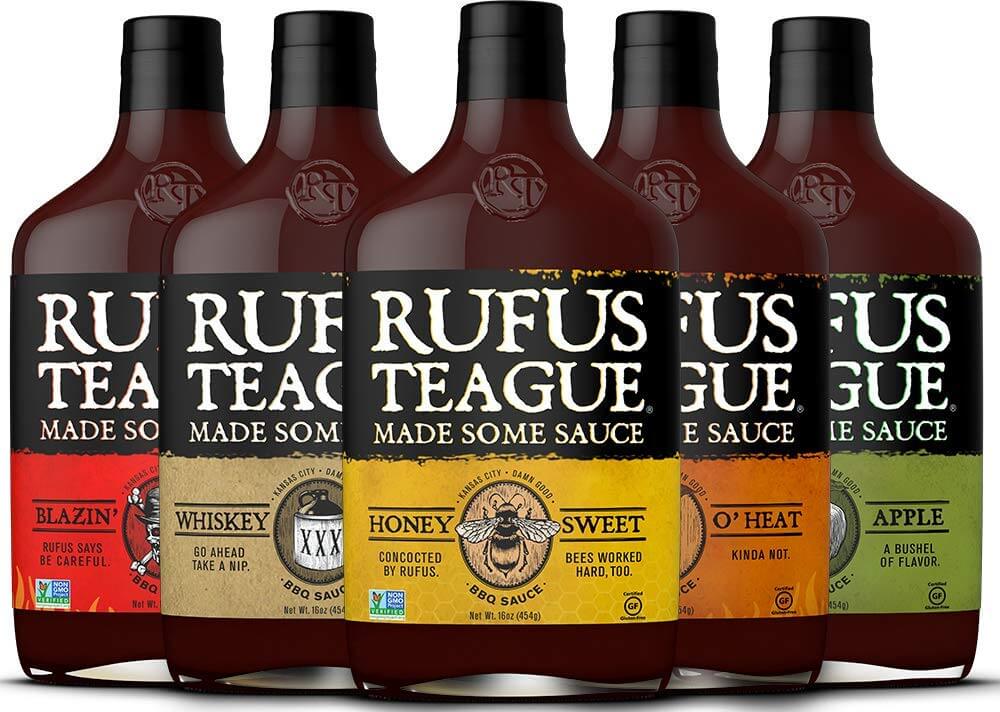If you fancy some baby back ribs or pulled pork, the only thing you need to finish these off with is a great BBQ sauce! Without getting into the serious debates of which States or regions make the best BBQ; there is a BBQ sauce for everyones tastes, whether southern-style, North Carolina, West Texas or one of the many other types of sauces available.
In this article we review a range of BBQ sauces and we also look at some of the key differences between the different types of sauces and what they tend to taste the best on. So, if you are looking for something a little different to the regular grocery store offerings, then continue to read on for our reviews of ten of the best BBQ sauces.Best Pick
The Primal Kitchen BBQ & Steak Sauce kit is our best pick as unsweetened sauces which are non-GMO and suitable for a range of diets includes paleo, keto and WHOLE 30.
Budget Pick
The Bibigo gochujang barbecue sauce is our budget pick to add some hot and sweet smokiness to ribs, chicken, tofu and more.
Quick Comparison: Top 10 Best BBQ Sauces
1. Primal Kitchen BBQ & Steak Sauce
Highlighted Features
-
Three 8.5 oz bottle kit of classic BBQ, golden BBQ and steak sauces
-
Certified organic and Non-GMO Project Verified
-
Paleo and Keto certified and WHOLE 30 approved
-
Certified as gluten free and do not contain any soy
-
The steak sauce is plant-based and suitable for vegans
The Primal Kitchen BBQ & Steak Sauce kit includes three glass bottles of organic and Non-GMO Project Verified sauces. The golden BBQ sauce is an unsweetened sauce free from any natural derivative sugars and as a spicy and sweet sauce is ideal for pulled pork and grilled peppers.
The classic BBQ sauce will add a smoky and bold flavor to meat, or it can be used as a dipping or topping sauce. The steak sauce is a plant-based sauce that is also vegan, and its smoky flavor is ideal for a range of meats and vegetable. All of these 8.5 oz sauces are WHOLE 30 approved, Paleo and Keto certified, soy free and certified as gluten free.
Some buyers have been disappointed with the taste of these sauces and others have commented that particular flavors, such as cumin or vinegar can overpower the other flavors in the sauces. There can also be a risk of the bottles being damaged during shipping.Pros
-
BBQ and steak sauce set
-
Organic
-
Non-GMO
-
Unsweetened
-
Paleo and keto friendly
-
Gluten free
Cons
-
Depending on your tastes you may find some of the flavors in these sauces overpower other sauces
-
Risk of damage to the bottles during shipping
2. Bibigo Gochujang Barbecue Sauce
Highlighted Features
-
An 11.5 oz squeezable bottle of Korean style BBQ sauce
-
Hot and sweet with hints of smokiness
-
Is fermented for a more complex taste
-
Can be used as a rib marinade, on pulled pork, chicken and tofu
The Korean-style Bibigo gochujang barbecue sauce is a hot and sweet sauce with smoky hints that is ideal for marinating ribs, pulled pork, chicken and tofu. Gochujang has a red pepper paste that is fermented for a more complex taste and this comes in an 11.5 oz plastic squeezable bottle. As this contains soy it is unsuitable for those who cannot consume soy.
Pros
-
Korean-style BBQ sauce
-
Hot and sweet
-
For ribs, pork, chicken and tofu
-
Complex taste
-
Squeezable bottle
Cons
-
Comes in a plastic squeezable bottle rather than glass
-
Contains soy so unsuitable for those with soy allergies or intolerances
3. Sonny's Authentic Sweet Bar-B-Q Sauce
Highlighted Features
-
Sonnys signature sweet BBQ sauce for Sweet and Smokey ribs
-
Can also be used to add sweetness and hickory smoke to beef, pork and chicken
-
Contains natural hickory smoke
-
Comes as an 84 oz container with easy grip pour handle
As the same sauce used on Sonnys signature Sweet and Smokey Ribs, the Sonnys Sweet BBQ Sauce is ideal for adding some sweetness and natural hickory smoke to ribs, pork, beef and chicken. Coming as a large 84 oz plastic container with an easy grip pour handle, this needs to be refrigerated after opening. There can also be some risk of damage to the container seal during shipping.
Pros
-
Sonnys signature sauce
-
For Sweet and Smokey ribs
-
Also for pork, beef and chicken
-
Natural hickory smoke
-
Large 84 oz container
Cons
-
As a larger container, it may be too big for some households as it needs refrigerating after opening
-
There is a risk of the container seal being damaged during shipping
-
Comes in a plastic container
4. The Salt Lick BBQ Sauce
Highlighted Features
-
A 12 oz glass bottle of honey pecan BBQ sauce
-
This is a natural pecan wood smoked sauce
-
Can be used on a variety of BBQ foods
-
This is a gluten free sauce
The Salt Lick BBQ sauce honey pecan is a natural pecan wood smoked sauce suitable for using on a variety of BBQ. This 12 oz glass bottle of sauce is also gluten free. This needs to be shaken well before using as it does separate, and it should be refrigerated once open.
The odd buyer considers the taste is not as much as expected from this manufacturer and it can be on the thinner side of BBQ sauces.Pros
-
Honey pecan BBQ sauce
-
Suitable for a range of BBQ
-
Natural pecan wood smoke
-
Gluten free
-
Glass bottle
Cons
-
Will need shaking well before using as it does separate
-
Some BBQ fans have been disappointed with the overall taste of this
-
It can be on the thinner side compared to other BBQ sauces
5. Stubbs Original BBQ Sauce
Highlighted Features
-
Four pack of 18 oz bottles of BBQ sauce made with tomatoes, vinegar, molasses and black pepper
-
Gives a hickory pit and tangy flavor to sweet baby back ribs
-
Free from any GMO ingredients, this is Non-GMO Project Verified
-
Certified as kosher and gluten free
-
Does not contain any HFCS
With a slow-simmered taste, Stubbs Original BBQ sauce is made with tomatoes, vinegar, molasses and black pepper. Free from any high fructose corn syrup (HFCS), its hickory pit and tangy flavor is ideal for making sweet baby back ribs. This sauce is kosher, gluten free and also non-GMO Project Verified.
Coming as a pack of four 18 oz glass bottles, some buyers consider it to be too watery, even though it is a vinegar based sauce and some buyers have also been disappointed to find it to be slightly too spicy.Pros
-
Tomato and vinegar BBQ sauce
-
Non-GMO
-
Hickory pit flavor
-
Kosher
-
Gluten free
-
No HFCS
Cons
-
Some have found this to be too watery as a BBQ sauce
-
Depending on your tastes, you may find it slightly too spicy
6. Daddy Sams Barbecue Sauce
Highlighted Features
-
Does not contain any thickeners or artificial ingredients
-
Made with natural mesquite smoke
-
A West Texas sauce giving sweetness and tang with some bite at the end
Free from any artificial ingredients and thickeners, Daddy Sams Bar-B-Que Sawce (original recipe) is a West Texas sauce. Molasses and vinegar-based, this sauce also contains natural mesquite smoke to give a sweet and tangy sauce with a little bite at the end. This sauce is kosher and gluten free certified and comes as a 19 oz glass jar. This style of sauce may a little sweet for some tastes.
Pros
-
Vinegar and molasses BBQ sauce
-
No artificial ingredients
-
Natural mesquite smoke
-
Kosher
-
Gluten free
Cons
-
As a West Texas sauce it may be too sweet for some buyers
7. Montgomery Inn Original Barbecue Sauce
Highlighted Features
-
Signature original BBQ sauce which is tangy and sweet
-
Comes as a 28 oz glass bottle
-
This is a tomato-based sauce with a secret blend of spices
-
For brushing or pouring onto meat or ribs after cooking
-
Now sweetened with cane sugar instead of HFC S
The tomato based Montgomery Inn original barbecue sauce is a signature sauce created in Ohio with a secret blend of spices. This tangy and sweet sauce should be heated and then poured or brushed onto your ribs or meat after cooking. Although this sauce used to contain high fructose corn syrup, it is now sweetened with cane sugar. This sauce comes as 28 oz glass bottles, although there can be a risk of receiving damaged bottles.
Pros
-
Tomato-based BBQ sauce
-
Signature sauce
-
Tangy and sweet
-
Glass bottle
-
No HFCS
Cons
-
There can be a risk of receiving damaged bottles
-
Can be on the tangier side of BBQ sauces
8. Dreamland Bar-B-Que Sauce
Highlighted Features
-
A southern-style and vinegar-based BBQ sauce for ribs, pork, sausages and chicken
-
Also great for salads and white bread
-
Available as 16 oz or 32 oz bottles
-
Has been a championship flavor for over 50 years
The low carb Dreamland bar-b-que sauce is a vinegar-based dipping sauce for ribs, chicken, beef, pork, sausages and even salads and white bread. Manufactured in Alabama, this southern-style sauce has been a championship flavor for over 50 years.
This is available as a 16 oz or 32 oz bottle that should be refrigerated after opening. This does contain high fructose corn syrup and some buyers are also disappointed to find that includes colors and other ingredients that may not have been in the original Dreamland sauce.Pros
-
Low carb BBQ sauce
-
Vinegar-based sauce
-
Multi-use dipping sauce
-
Championship flavor
-
Available as two sizes
Cons
-
Made with high fructose corn syrup
-
Contains other ingredients that buyers would not expect to see in the original BBQ sauce
9.Blues Hog Sauce Bbq Tennessee Red
Highlighted Features
-
A southern style red BBQ sauce made with vinegar and peppers
-
Comes as a 16 oz glass jar
-
This award winning sauce can be used for marinades, basting or dipping and is ideal for pork and beef
-
Suitable for those on a gluten free diet
The award winning Blues Hog Tennessee red sauce is a multipurpose sauce which can be used for marinating or basting with or just as a side sauce. Well suited to pork and beef, this gluten free sauce is a southern-style thin vinegar and pepper based sauce and comes in a 16 oz glass jar.
This is a thinner sauce than some buyers expected and as vinegar sauce, you may prefer to mix it with a sweeter sauce. This contains high fructose corn syrup, which some buyers may not be as keen on.Pros
-
Red BBQ sauce
-
Vinegar and pepper-based
-
Multipurpose sauce
-
Gluten free
-
Award winning
Cons
-
Some may prefer to mix this vinegar-based sauce with a sweeter sauce
-
This does contain high fructose corn syrup
10. Rufus Teague Premium BBQ Sauce
Highlighted Features
-
A variety pack of five BBQ sauces with flavors of the Deep South
-
Made with natural ingredients, these are suitable for grilling, dipping or dunking
-
These award winning sauces come in 16 oz glass bottles
-
Certified as gluten free and kosher
-
Non-GMO Project Verified
An ideal way to try out a variety of sauces, the Rufus Teague variety pack includes Honey Sweet, a thick and sweet sauce; Touch O' Heat which is a sweet and smoky sauce with a little heat; the thick and sweet Blazin' Hot sauce, along with Whiskey Maple and Smoky Apple BBQ sauces.
These sauces are all Non-GMO Project Verified and certified as kosher and as gluten free. They are also award winning sauces that contain natural ingredients. As thicker sauces, with flavors of the Deep South, they can be used for dipping, dunking and grilling. The glass bottles are all 16 oz. There can be a risk of receiving damaged bottles and as thicker sauces, it can be much harder to pour out from the bottles; especially after refrigeration.
Pros
-
BBQ sauce variety pack
-
Range of Deep South flavors
-
GMO-free
-
Kosher
-
Gluten free
-
Award winning
Cons
-
These are thicker sauces which you may not be as keen on
-
Can be difficult to pour out the sauces after refrigerating
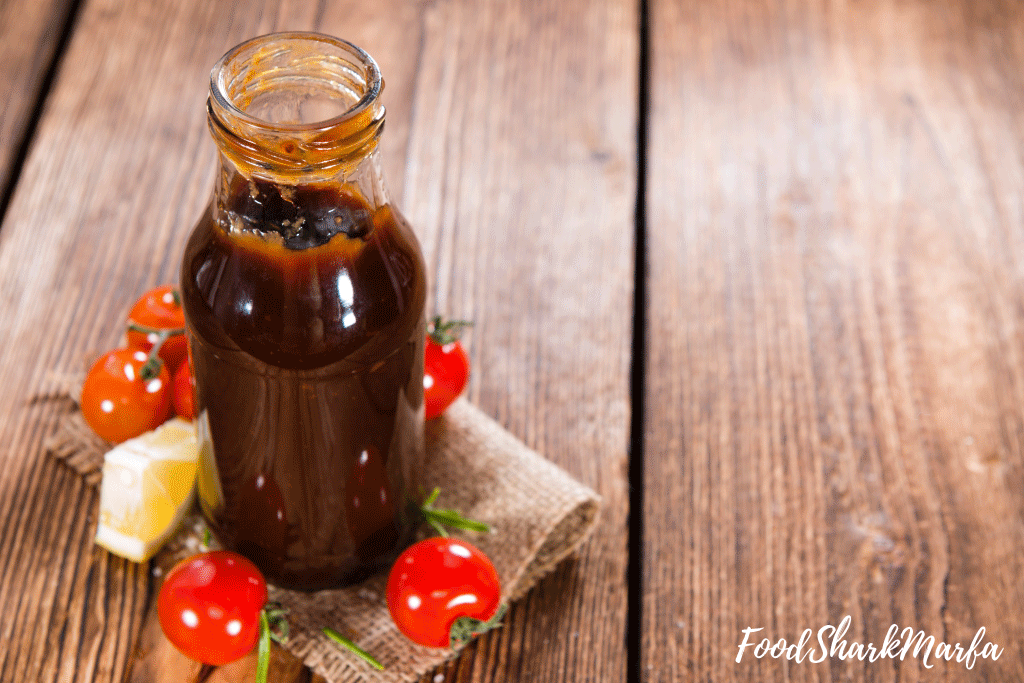
Things to Consider Before Buying BBQ Sauce
Barbeque originated along the eastern coastline, where the southern-style of slow cooking over a wood grill, often done by slaves, evolved from cooking techniques of indigenous people who were living in Florida and the Caribbean during the Spanish colonization. This style of cooking was called babacots, which the Spanish translated to barbacoa and the name then evolved to barbeque.
The original cooking method of barbacoa was to dig a pit in the ground and fill it with burning wood. The pit would then be filled with cows heads and left to slowly smoke and cook as the wood burned.
In 1748, a botanist and naturalist observed slaves in Philadelphia pounding and preserving Guinea peppers to be used as a sauce for meat and fish. The botanist, called Peter Kalm, noted that adding the pepper sauce to food was a very fine taste.
Although the cooking methods and meat cuts are often the identifiers of regional barbeque, the types of sauces can be just as important. The many styles of sauce can usually be grouped into one of four main types of sauce although over time, variants of the different sauces have made their way into the pits of other States or regions offering a wide variety of sauces to suit whatever flavors you prefer.
The main types of BBQ sauce bases are tomato, vinegar, mustard and mayonnaise:
Tomato-Based BBQ Sauces
Usually containing tomatoes in the form of ketchup, this is usually a thicker sauce that can be used on any meats whether barbecued or smoked, although it is popular for grilled or smoked meat or hamburger sandwiches.
These sauces usually have tangy, sweet, spicy flavors along with smokiness from liquid smoke.
The introduction of ketchup by Heinz in 1876 was a major point in the evolution of barbecue sauces and tomato-based sauces developed in Tennessee where a wider variety of meats were barbecued compared to in Carolina. When these tomato-based sauces arrived in Kansas City in the early twentieth century, another important time for BBQ sauce occurred.
Often used as a dipping sauce or spread, the Kansas City (or KC-style) barbecue sauce along with ketchup contains molasses, vinegar, brown sugar, cayenne pepper and other spices and is popular for smoked beef brisket, chicken and spare ribs, or any other meats where the tomato will not overwhelm the flavors or the palate.
Other tomato-based sauces include Texas-style sauces which are usually spicier with less sweetness as they omit molasses, while the central Texas BBQ sauce is thinner and is usually used on beef as it contains beef drippings. A Memphis-style sauce is also thinner and does not contain any molasses.
A tomato-based sauce is usually added at the end of cooking or at the table to reduce the risk of the natural sugars in the sauce from caramelizing and then burning the meat. It can be added for smoking as long as the temperature is kept below 265F.
Vinegar-Based BBQ Sauces
Thinner than tomato-based sauces, vinegar-based sauces are popular in North Carolina-style barbeques where they are a key accompaniment to pork - including of course whole hog - as the vinegar in the sauce helps to balance out the pork fat.
These sauces are usually made with cider or white vinegar and spices. An Eastern North Carolina vinegar-based sauce is a thin sauce with a more acidic profile and is made with vinegar, spices, red pepper and hot sauces.
Some variants of vinegar-based sauces such as the Western Carolina (Lexington or Piedmont) do contain tomatoes, although these are still thin and maintain the vinegar notes; often alongside a pepper bite. Like a traditional vinegar-based sauce, this can also be used for pork dishes, whether served as is or on sandwiches.
Mustard-Based BBQ Sauces
Typical along the Mustard-Belt in South Carolina, mustard-based barbeque sauces are usually used on a whole pit-smoked hog, pork shoulder or on smoky pulled pork, where the sauces tangy and rich flavors will complement the pork much better than a tomato-based sauce.
A mustard-based sauce is mainly made with mustard and vinegar, with other seasonings added and for this reason is best served on the side to prevent it from overwhelming the pork. These styles of sauces probably developed from when German settlers arrived in South Carolina with mustards.
Mayonnaise-Based BBQ Sauces
The Alabama white barbecue sauce is made from a mayonnaise base which is thinned out with vinegar and lemon and has other seasonings such as black pepper added to give a distinct sauce that complements smoked chicken and pulled pork recipes.
Using Barbeque Sauces
Barbecue sauces are usually better suited for barbecuing rather than grilling just because the sugars in a BBQ sauce will not burn during barbequing at the lower cooking temperature of 225F.
If you add BBQ sauce to meat for grilling, it can cause the sauce to smoke and burn as the grilling temperature is higher. Adding a BBQ sauce while grilling at higher temperatures can also cause the sauce to turn gummy-like.
If you are grilling meat and want to use BBQ sauce, then it should be brushed on the meat at the end of cooking or around ten minutes before the end; although sauce can be added to ribs around 30 minutes or even longer before the end of cooking as most people want a thicker and stickier coating on ribs.
When you add BBQ sauce towards the end of grilling, the caramelization of the sugars will give a rich and complex flavor to the meat. You can just add the sauce carefully to the ribs or meats coat by coat and if it does start to flare up, just move the meat to a cooler part of the grill. Continue to keep an eye on the meat and the grill temperature to ensure that the sugars do not start to burn.
If you smoke meats with a BBQ sauce, then the lower temperatures of the smoker means the sauce will not burn. Some caramelization of sugars will usually occur, particularly when the sauce is left on for longer periods of time, but otherwise it is rare that smoking meat with BBQ sauce will burn.
Of course, the other way to serve BBQ sauce is on the side.
A Few Tips for Using BBQ Sauce
If you are new to BBQ, then a full slab or spareribs with the tips will take around three quarters of a cup of thick sauce, while a slab of baby back ribs will take around a third of a cup, plus of course, extra sauce on the table for dipping. If you are cutting ribs before serving them then do not sauce the cut sides.
If you are applying the sauce after cooking, the sauce will often benefit from being gently warmed on the cooktop or in the microwave before being added to the meat. If you brush the meat with sauce, then always pour the sauce into a bowl before using and once you have finished brushing, discard the leftover sauce in the bowl to reduce the risk of any foodborne illness.
If you are serving pulled pork, then you may want to just make the sandwiches and allow people to add their own sauce rather than covering them yourself as some people always like a lot of sauce, while others prefer just a little.
If meat isnt your thing, or you just have a lot of BBQ sauce to use up, then try some on your grilled seafood or fish or mix some sauce with olive oil and lemon for a quick salad vinaigrette.
You can also add some to nachos or quesadillas, potato salad, slaws and even mix it up in savory frostings for cornbread muffins. A tomato-based BBQ sauce can make a great substitute for marinara on pizza, or add a little to your baked beans, rice or stuffed potatoes.
Conclusion
In this review we have looked at a selection of different BBQ sauces, as well as the origins of one of our favorite dishes and how the style of BBQ sauces vary across regions. We have also offered a few tips for using BBQ sauces, such as when to add them when grilling and just how much sauce to use to coat a slab of baby back ribs. We have also provided a few ideas on how else you can use BBQ sauce in everyday cooking to bring some BBQ flavor to variety of foods.
If you want something different for your baby back ribs, pulled pork, or even your tofu, then we hope that our reviews of the best BBQ sauces have been helpful and have encouraged you to try something a little different next time you fire the grill or smoker up.The post The 10 Best BBQ Sauce Brands for Your Baby Backs Ribs and More appeared first on Food Shark Marfa .

